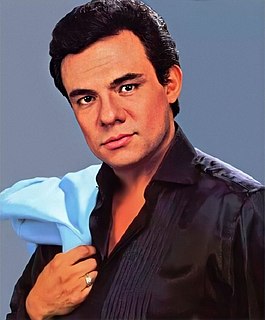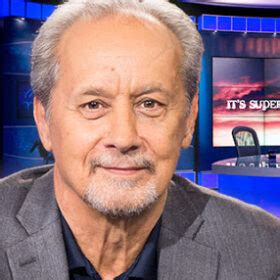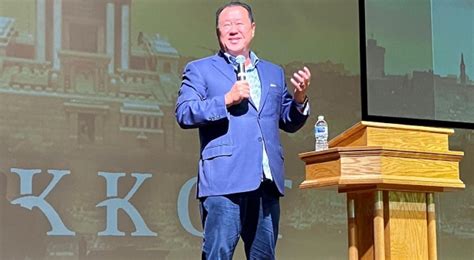A Quote by Bob Parr
The greatest tragedy is a life lived and died without knowing Father God intimately and experiencing His love personally.
Related Quotes
When he died, I went about like a ragged crow telling strangers, "My father died, my father died." My indiscretion embarrassed me, but I could not help it. Without my father on his Delhi rooftop, why was I here? Without him there, why should I go back? Without that ache between us, what was I made of?
Jesus is the prime exemplar of life in God's presence. He lived out of an awareness of the identity God had given him, not the identity the world wanted to give him; he led an active, ongoing prayer life; he took time apart from the world to be with his Father; he made his Father's agenda his agenda; he made his Father's love for people evident in tangible ways; and so on. These are all characteristics that we should emulate in our lives.
I had the experience of having my grandmother in a nursing home at the end of her life, and had dementia set in with my father. He was in a nursing home with dementia at the end of his life, but it happened for me personally 10 years ago. My father was much older than my mother, so I experienced it as a pretty young person. People's parents die at various ages, but my father died of mortality. He died of being an old person. Illness and stuff happened, but essentially, he was old and he was going to die.
How was it that, even in the common tasks of an ordinary life, Jesus drew the praise of heaven? At the core of His being, He only did those things which pleased the Father. In everything, He stayed true, heartbeat to heartbeat, with the Father's desires. Jesus lived for God alone; God was enough for Him. Thus, even in its simplicity and moment-to-moment faithfulness, Christ's life was an unending fragrance, a perfect offering of incomparable love to God.
One of the greatest benefits of our salvation has to be that of hearing God speak to us personally. There can be no intimate relationship with our heavenly Father without it. But, as easy as it is for us to speak to Him, the average Christian has a hard time hearing His voice. This is not the way the Lord intended it to be.
The utter failure came at the Crucifixion in the tragic words, 'My God, my God, why hast thou forsaken me?' If you want to understand the full tragedy of those words you must realize what they meant: Christ saw that his whole life, devoted to the truth according to his best conviction, had been a terrible illusion. He had lived it to the full absolutely sincerely, he had made his honest experiment, but it was nevertheless a compensation. On the cross his mission deserted him. But because he had lived so fully and devotedly he won through to the Resurrection body.




































